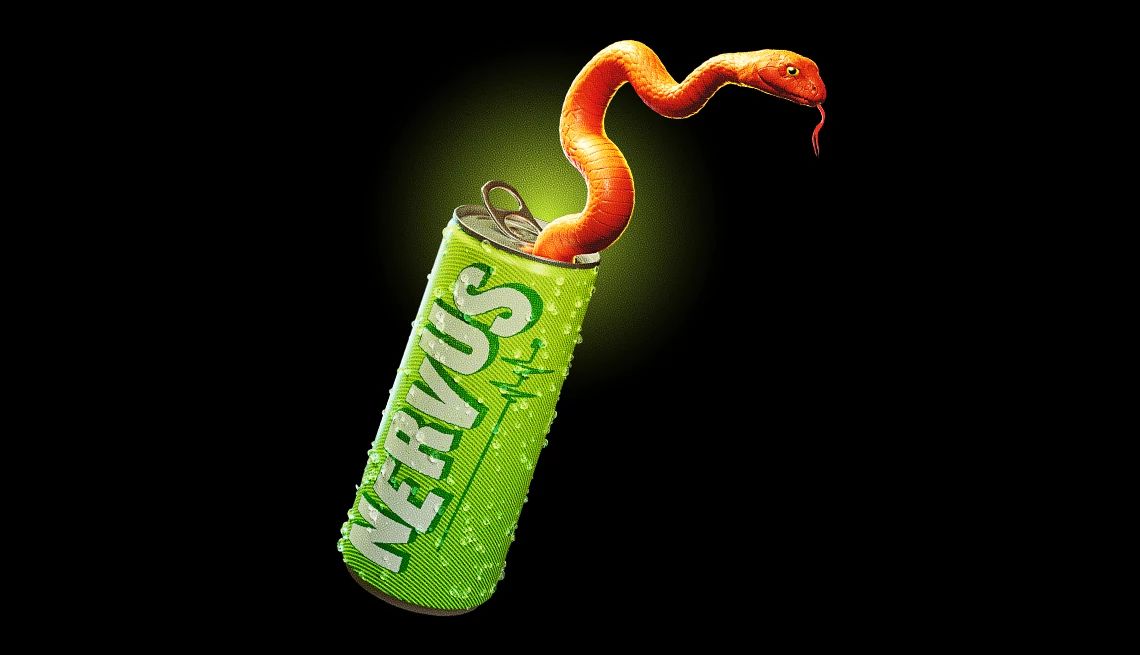
The dangers of hidden caffeine for older adults | members only
- Select a language for the TTS:
- UK English Female
- UK English Male
- US English Female
- US English Male
- Australian Female
- Australian Male
- Language selected: (auto detect) - EN
Play all audios:

WHAT IS CAFFEINE? “To an extent, it’s the most used drug in the world,” says Amit Shah, M.D., a geriatrician with the Mayo Clinic in Scottsdale, Arizona. People wake up with a cup of coffee
or tea around the world, and in general, this is safe in moderation, he says. Caffeine can also be found in many sodas, as well as hot chocolate, chocolate bars and chocolate-flavored foods.
Some studies have shown that caffeine may be beneficial to your health, too, reducing your risk of developing Parkinson’s disease, dementia and Alzheimer’s disease, among other benefits.
About 30 to 60 minutes after drinking a beverage with caffeine, you usually feel an energy boost, depending on what the drink is and how it’s prepared, Shah says. For instance, a shot of
espresso or a highly concentrated energy shot like those found in gas stations will hit your bloodstream faster than a drink with added protein, such as a cappuccino. According to the Food
and Drug Administration, 400 milligrams of caffeine is considered the safe daily amount for healthy adults. It can be tricky to track exactly how much you’re ingesting, though. Caffeine
content varies widely depending on how a drink is prepared, and it’s not a requirement for food or beverages to list caffeine content on labels. WHY CAFFEINE CAN BE PROBLEMATIC FOR OLDER
ADULTS As we get older, our bodies become more sensitive to the effects of caffeine. “Even smaller amounts of caffeine are not tolerated as much as we age,” says Sarah Christine Ruff, M.D.,
a primary care physician with UNC Health in Durham, North Carolina. This happens for a variety of reasons, including changing body composition, renal function and enzyme levels. In one
study, coffee drinkers between the ages of 65 and 70 took 33 percent longer to metabolize caffeine than younger participants, meaning that the effects of the caffeine are amplified and last
longer. Smoking and certain medications also increase the time needed to metabolize caffeine, says Stacey Woodson, a registered dietitian based in Philadelphia. You know the telltale signs
when you’ve had too much caffeine: irritability, feeling jittery, insomnia. Unfortunately, the only remedy is to wait it out. “You have to let your body metabolize it,” Shah says. However,
if you ingest a very high level of caffeine, have a health condition or take a medication that makes you particularly sensitive to caffeine, you may experience symptoms including a racing
heart, heart palpitations, irregular heartbeats, feeling agitated and anxious to the point of wanting to crawl out of your skin, or even having a panic attack, Shah adds. If you experience
these symptoms, get to a hospital. Since caffeine decreases blood clotting, it may interact with other drugs that do the same, such as warfarin, aspirin or NSAIDs. It can also reduce the
efficacy of certain drugs used to treat diabetes, depression and thyroid problems. (Ask your doctor what a safe caffeine consumption level is for you.)
